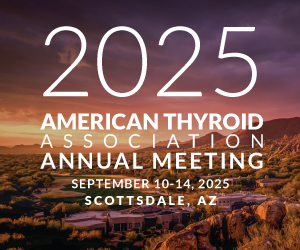The tragic events in Japan over the last several days underscore the importance of distribution of potassium iodide (KI) in regions surrounding nuclear power plants. Radioactive iodine can be released in nuclear accidents. Infants and children are particularly at risk for thyroid cancer following exposures to high levels of radioactive iodine. If taken soon after exposure to the radioactive iodine released during a nuclear emergency, potassium iodide can help to provide protection against thyroid cancer. Distribution of potassium iodide in the area around a nuclear reactor prior to an accident can ensure that it is available in a timely fashion, even in the setting of major disruptions to transportation and other infrastructure, as have occurred in Japan.
Since 1984, the American Thyroid Association has advocated that:
- Potassium iodide should be part of an emergency plan that includes evacuation, sheltering, and avoiding contaminated food, milk, and water.
- Potassium iodide should be made available to populations living within 200 miles of a nuclear power plant.
- Potassium iodide should be “predistributed” to households within 50 miles of a plant.
- Potassium iodide should be used only under regulatory guidance.
Additional information about potassium iodide distribution can be found at: http://www.thyroid.org/professionals/publications/statements/ki/02_04_09_ki_qa.html



